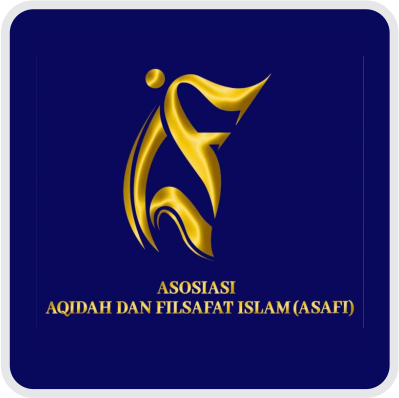A Quranic View on The Belief-Oriented Standard of Human Ethics
DOI:
https://doi.org/10.30983/itr.v3i1.9547Keywords:
Standard of ethics, Nature of ethics, Belief-based ethicsAbstract
References
Al-Ghazali. Ihya ’Ulumuddin, P. (n.d.). Mihrab Kaum ’Arifin, Penerjemah Hasan Abrori. Surabaya: Darul Fikr Beirut.
Al-Ghazali, M. ibn M. ibn M. al-G. al-T., Hamid, A., & Al-Islam, H. (1963). Ihyâ Ulûmuddîn. Beirut: Dar Ibn Hazm.
Al-Jabri, M. A. (2001). Al-Aql al-Akhlâqî al-Arabî. Beirut: Center for Arab Unity Studies.
Al-Qastalani, A. ibn M. ibn A. B. A. al-A. S. al-D. (2004). Al-Mawâhib al-Ladunniyyah bil-Manâhij al-Muhammadiyyah. Beirut: Al-Maktaba al-Islamiyya.
Al-Qurtubi. (2006). Muhammad ibn Ahmad ibn Abu Bakr Abu Abdullah. Beirut: Dar al-Risala.
Attia, A. A. H. (1990). Al-Akhlâq fî al-Fikr al-Arabî al-Mu’ashir: Dirâsah Tahliliyah li al-Ittijâhât al-Akhlâqiyyah al-Haliyyah fî al-Wathan al-Arabî. Cairo: Dar Al-Thaqafa.
Badawi, M. M. (1967). Al-Akhlâq bayn al-Falsafah wa ilm al-Ijtima’. Cairo: Dar Al-Ma’arif.
Badr-ei, F. (1999). Translator. Ethical-Religious Concepts in the Holy Quran. Tehran: Farzan.
Danielle, D. M. A. R., & Rebecca, M. (1990). The Moral World of the Qurʾān , I.B. London: Tauris.
Draz, M. A. (1973). Dustûr al-Akhlâq fî al-Qur’an: Dirâsah li Nizâm al-Akhlâq al-Nazariyah wa al-Amaliyah fî al-Qur’an al-Karîm muqârinan bi al-nazariyat al-Qadîmah wa al-hadîtsah. And Commented by Abd Al-Sabour Shahin: Reviewed by Sayyid Muhammad Badawi.
El-Sharqawi, M. A. (1988). Al-Fikr Al-Akhlâqî: Dirâsah Muqârinah. Cairo: Al-Zahra Library.
Fadlo, H. G. (2001). Ethical presuppositions of the Qurʾān”. The Muslim World, 70, 1 –28.
Faris, I. (1979). Ahmad ibn Faris ibn Zakariya Abu al-Husayn. Beirut: Dar al-Fikr.
Gibb, H. (1961). Book review: God of Justice, a Study in the Ethical Doctrine of the Qur’ān”. The Muslim World, 51, 140 –143.
John, B. (2004). ’“Book Review: Ethico-Religious Concepts in the Qurʾān” ’. Bulletin of the School of Oriental and African Studies, 31, 391 –392.
Lestari, T. D., & Sa’adah, N. (2021). Pendidikan Multikultural Solusi Atas Konflik Sosial: Indikasi Intoleran dalam Keberagaman. Jurnal Sosiologi Pendidikan Humanis, 6(2), 140. https://doi.org/10.17977/um021v6i2p140-154
Majid, F. (1991). Ethical Theories in Islam. Leiden: E. J. Brill.
Mariam, A. (2010). Islamic Ethics: Divine Command Theory in Arabo-Islamic Thought. New York: Routledge.
Miskawayh, I. (2015). Tahzîb al-Akhlâq. United Arab Emirates: Abu Dhabi Tourism and Culture Authority.
Moussa, M. Y. (1942). Falsafat al-Akhlâq fî al-Islâm wa shilatuha bi al-Falsafah al-Ighrîqiyyah. Cairo: Al-Risala Press.
Moussa, M. Y. (1943). Mabâhits fî Falsafat al-Akhlâq. Cairo: Al-Azhar Press.
Salahaddin, A. (1983). Kur’an da dini ve Ahlaki Kavramlar. Istanbul: Pinar Yayinlari.
Tantawi, M. S. (1997). Al-Tafsîr al-Wasîth li al-Qur’an al-karîm. Cairo: Nahdet Misr Library.
W., M. A. H. (2014). Hermeneutika Sastra Barat dan Timur (1st ed.). Jakarta: Sadra Press Sadra International Institute.



